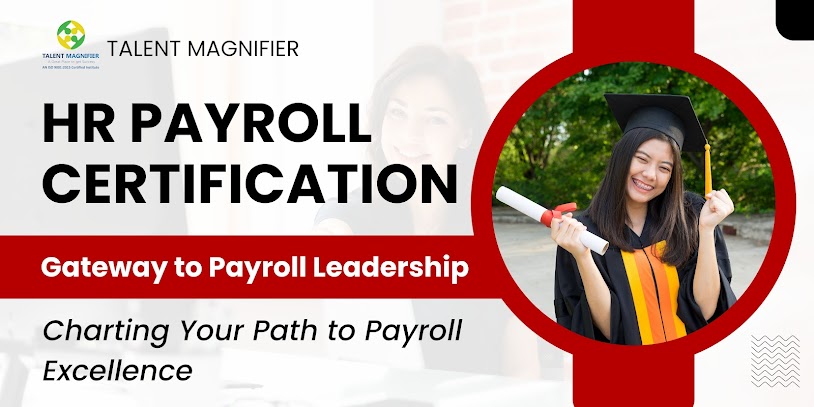HR Payroll Certification: Your Gateway to Payroll Leadership

The field of human resources (HR) is multifaceted, encompassing various specialized areas, each critical to the smooth functioning of an organization. One such area that plays a pivotal role in employee well-being and organizational success is payroll management. Accurate and efficient payroll processing ensures employees are paid correctly and on time, fostering trust and satisfaction within the workforce. For HR professionals seeking to excel in the realm of payroll, obtaining an HR payroll certification can be the key to unlocking new career opportunities and becoming a payroll leader. In this blog, we will delve into the significance of HR payroll certification and how it can serve as your gateway to payroll leadership. The Evolving Role of Payroll in HR Payroll management has come a long way from its traditional, administrative roots. In today's business environment, payroll is not just about calculating salaries and processing payments; it's about compliance, data analys...



Comments